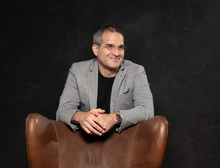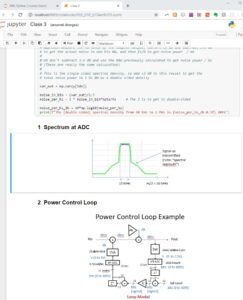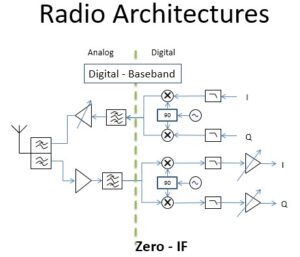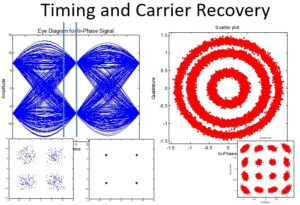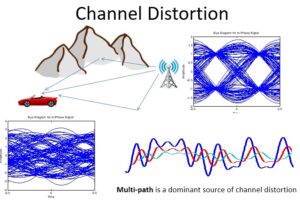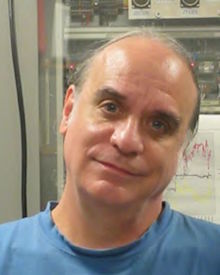Calendar
IEEE Boston/Providence/New Hampshire Reliability Chapter
FREE In Person and Virtual Event
Measuring the Reliability of new technology is critical for any development team. Accelerated Life Testing (ALT) measures a new product’s life by testing at elevated stresses. It saves valuable time & resources; giving teams the right information rapidly. Join this webinar to get an overview of ALT and a few tips and tricks to ensure you avoid common pitfalls.
Measuring the Reliability of new technology is critical for any development team. Accelerated Life Testing (ALT) measures a new product’s life by testing at elevated stresses. It saves valuable time & resources; giving teams the right information rapidly. Join this webinar to get an overview of ALT and a few tips and tricks to ensure you avoid common pitfalls.
Agenda:
5:30 PM Pizza, salad, soft drinks, and Networking
6:00 PM Technical Presentation
6:45 PM Questions and Answers
7:00 PM Adjournment
Biography: Adam Bahret of Apex Ridge Reliability Consulting
Adam Bahret is the founder of Apex Ridge Consulting and a leading reliability expert who writes, speaks and coaches engineering teams on reliability as a competitive edge. His reliability strategy has delivered millions in savings for clients while mitigating risk and forming a foundation for reliability-fueled growth and brand dominance. His clients range across multiple industry segments, including medical devices, robotics, semiconductor, aerospace, consumer, and automotive.
Adam works with technical teams to improve the design while mentoring leadership teams in adopting the processes, language, and behaviors to build a reliability culture. He also introduces key reliability metrics such as “time-to-reliability” that guide organizational thinking and build a robust reliability culture that’s the hallmark of dominant top-performing technology companies.
Adam is the author of three books on reliability engineering: Devastate the Competition, How to Take Market Share Through Robust Design (2023), Reliability Culture, How Leaders Build Organizations that Create Reliable Products (Wiley 2021), and How Reliable is Your Product, 50 Ways to Improve Product Reliability (2nd Ed 2016). Adam has also released a series of small handbooks on specific reliability tools called “Adam’s The Perfect Reliability Tool” book series. “The Perfect HALT”, “The Perfect Accelerated Life Test”, “The Perfect Reliability Growth Test”, and “ The Perfect DFMEA.”
Adam has deep technical expertise and over 25 years of experience in product development and reliability engineering. He has an MS in Mechanical Engineering from Northeastern University, is an ASQ nationally certified reliability engineer, and an international speaker on technology, leadership, and product development. More information on Adam and Apex Ridge can be found at www.adambahret.com.
The meeting is open to all. You do not need to belong to the IEEE to attend this event; however, we welcome your consideration of IEEE membership as a career enhancing technical affiliation.
There is no cost to register or attend, but registration is required (so that we may purchase enough food!)
Registration: https://events.vtools.ieee.org/m/415811
COURSE DESCRIPTION
Digital Signal Processing (DSP) for Software Radio
Course Kick-off / Orientation 6:00PM – 6:30PM EDT; Thursday, June 13, 2024
First Video Release, Thursday, June 13, 2024. Additional videos released weekly in advance of that week’s live session!
Live Workshops: 6:00PM – 7:30PM EDT; Thursdays, June 20, 27, July 11, 18, 25
Registration is open through the last live workshop date. Live workshops are recorded for later use.
Course Information will be distributed on Thursday, June 13, 2024 in advance of and in preparation for the first live workshop session. A live orientation session will be held on Thursday, June 13, 2024.
Attendees will have access to the recorded session and exercises for two months (until August 20, 2024) after the last live session ends!
IEEE Member Early Rate (by May 30th): $190.00
IEEE Member Rate (after May 30th): $285.00
IEEE Non-Member Early Rate (by May 30th): $210.00
IEEE Non-Member Rate (after May 30th): $315.00
Decision to run/cancel course: Thursday, June 6, 2024
Speaker: Dan Boschen
This is a hands-on course combining pre-recorded lectures with live Q&A and workshop sessions in the popular and powerful open-source Python programming language.
Pre-Recorded Videos: The course format includes pre-recorded video lectures that students can watch on their own schedule, and an unlimited number of times, prior to live Q&A workshop sessions on Zoom with the instructor. The videos will also be available to the students for viewing for up to two months after the conclusion of the course.
Course Summary
This course builds on the IEEE course “DSP for Wireless Communications” also taught by Dan Boschen, further detailing digital signal processing most applicable to practical real-world problems and applications in radio communication systems. Students need not have taken the prior course if they are familiar with fundamental DSP concepts such as the Laplace and Z transform and basic digital filter design principles.
This course brings together core DSP concepts to address signal processing challenges encountered in radios and modems for modern wireless communications. Specific areas covered include carrier and timing recovery, equalization, automatic gain control, and considerations to mitigate the effects of RF and channel distortions such as multipath, phase noise and amplitude/phase offsets.
Dan builds an intuitive understanding of the underlying mathematics through the use of graphics, visual demonstrations, and real-world applications for mixed signal (analog/digital) modern transceivers. This course is applicable to DSP algorithm development with a focus on meeting practical hardware development challenges, rather than a tutorial on implementations with DSP processors.
Now with Jupyter Notebooks!
This long-running IEEE Course has been updated to
include Jupyter Notebooks which incorporates graphics together with Python simulation code to provide a “take-it-with-you” interactive user experience. No knowledge of Python is required but the notebooks will provide a basic framework for proceeding with further signal processing development using that tools for those that have interest in doing so.
This course will not be teaching Python, but using it for demonstration. A more detailed course on Python itself is covered in a separate IEEE Course routinely taught by Dan titled “Python Applications for Digital Design and Signal Processing”.
All set-up information for installation of all tools used will be provided prior to the start of class.
Target Audience:
All engineers involved in or interested in signal processing for wireless communications. Students should have either taken the earlier course “DSP for Wireless Communications” or have been sufficiently exposed to basic signal processing concepts such as Fourier, Laplace, and Z-transforms, Digital filter (FIR/IIR) structures, and representation of complex digital and analog signals in the time and frequency domains. Please contact Dan at boschen@loglin.com if you are uncertain about your background or if you would like more information on the course.
Benefits of Attending/ Goals of Course:
Attendees will gain a strong intuitive understanding of the practical and common signal processing implementations found in modern radio and modem architectures and be able to apply these concepts directly to communications system design.
Pre-recorded lectures (3 hours each) will be distributed Friday prior to each week’s workshop dates. Workshop / Q&A sessions are 6:00PM – 7:30PM on the dates listed below.
Kick-off / Orientation: Thursday, June 13, 2024
Topics / Schedule:
Class 1: Thursday, June 20: DSP Review, Radio Architectures, Digital Mapping, Pulse Shaping, Eye Diagrams
Class 2: Thursday, June 27, 2024: ADC Receiver, CORDIC Rotator, Digital Down Converters, Numerically Controlled Oscillators
Class 3: Thursday, July 11, 2024: Digital Control Loops; Output Power Control, Automatic Gain Control
Class 4: Thursday, July 18, 2024: Digital Control Loops; Carrier and Timing Recovery, Sigma Delta Converters
Class 5: Thursday, July 25, 2024: RF Signal Impairments, Equalization and Compensation, Linear Feedback Shift Registers
Speaker’s Bio:
Dan Boschen has a MS in Communications and Signal Processing from Northeastern University, with over 25 years of experience in system and hardware design for radio transceivers and modems. He has held various positions at Signal Technologies, MITRE, Airvana and Hittite Microwave designing and developing transceiver hardware from baseband to antenna for wireless communications systems and has taught courses on DSP to international audiences for over 15 years. Dan is a contributor to Signal Processing Stack Exchange https://dsp.stackexchange.com/, and is currently at Microchip (formerly Microsemi and Symmetricom) leading design efforts for advanced frequency and time solutions.
For more background information, please view Dan’s Linked-In page at: http://www.linkedin.com/in/danboschen
COURSE DESCRIPTION
Digital Signal Processing (DSP) for Software Radio
Course Kick-off / Orientation 6:00PM – 6:30PM EDT; Thursday, June 13, 2024
First Video Release, Thursday, June 13, 2024. Additional videos released weekly in advance of that week’s live session!
Live Workshops: 6:00PM – 7:30PM EDT; Thursdays, June 20, 27, July 11, 18, 25
Registration is open through the last live workshop date. Live workshops are recorded for later use.
Course Information will be distributed on Thursday, June 13, 2024 in advance of and in preparation for the first live workshop session. A live orientation session will be held on Thursday, June 13, 2024.
Attendees will have access to the recorded session and exercises for two months (until August 20, 2024) after the last live session ends!
IEEE Member Early Rate (by May 30th): $190.00
IEEE Member Rate (after May 30th): $285.00
IEEE Non-Member Early Rate (by May 30th): $210.00
IEEE Non-Member Rate (after May 30th): $315.00
Decision to run/cancel course: Thursday, June 6, 2024
Speaker: Dan Boschen
This is a hands-on course combining pre-recorded lectures with live Q&A and workshop sessions in the popular and powerful open-source Python programming language.
Pre-Recorded Videos: The course format includes pre-recorded video lectures that students can watch on their own schedule, and an unlimited number of times, prior to live Q&A workshop sessions on Zoom with the instructor. The videos will also be available to the students for viewing for up to two months after the conclusion of the course.
Course Summary
This course builds on the IEEE course “DSP for Wireless Communications” also taught by Dan Boschen, further detailing digital signal processing most applicable to practical real-world problems and applications in radio communication systems. Students need not have taken the prior course if they are familiar with fundamental DSP concepts such as the Laplace and Z transform and basic digital filter design principles.
This course brings together core DSP concepts to address signal processing challenges encountered in radios and modems for modern wireless communications. Specific areas covered include carrier and timing recovery, equalization, automatic gain control, and considerations to mitigate the effects of RF and channel distortions such as multipath, phase noise and amplitude/phase offsets.
Dan builds an intuitive understanding of the underlying mathematics through the use of graphics, visual demonstrations, and real-world applications for mixed signal (analog/digital) modern transceivers. This course is applicable to DSP algorithm development with a focus on meeting practical hardware development challenges, rather than a tutorial on implementations with DSP processors.
Now with Jupyter Notebooks!
This long-running IEEE Course has been updated to
include Jupyter Notebooks which incorporates graphics together with Python simulation code to provide a “take-it-with-you” interactive user experience. No knowledge of Python is required but the notebooks will provide a basic framework for proceeding with further signal processing development using that tools for those that have interest in doing so.
This course will not be teaching Python, but using it for demonstration. A more detailed course on Python itself is covered in a separate IEEE Course routinely taught by Dan titled “Python Applications for Digital Design and Signal Processing”.
All set-up information for installation of all tools used will be provided prior to the start of class.
Target Audience:
All engineers involved in or interested in signal processing for wireless communications. Students should have either taken the earlier course “DSP for Wireless Communications” or have been sufficiently exposed to basic signal processing concepts such as Fourier, Laplace, and Z-transforms, Digital filter (FIR/IIR) structures, and representation of complex digital and analog signals in the time and frequency domains. Please contact Dan at boschen@loglin.com if you are uncertain about your background or if you would like more information on the course.
Benefits of Attending/ Goals of Course:
Attendees will gain a strong intuitive understanding of the practical and common signal processing implementations found in modern radio and modem architectures and be able to apply these concepts directly to communications system design.
Pre-recorded lectures (3 hours each) will be distributed Friday prior to each week’s workshop dates. Workshop / Q&A sessions are 6:00PM – 7:30PM on the dates listed below.
Kick-off / Orientation: Thursday, June 13, 2024
Topics / Schedule:
Class 1: Thursday, June 20: DSP Review, Radio Architectures, Digital Mapping, Pulse Shaping, Eye Diagrams
Class 2: Thursday, June 27, 2024: ADC Receiver, CORDIC Rotator, Digital Down Converters, Numerically Controlled Oscillators
Class 3: Thursday, July 11, 2024: Digital Control Loops; Output Power Control, Automatic Gain Control
Class 4: Thursday, July 18, 2024: Digital Control Loops; Carrier and Timing Recovery, Sigma Delta Converters
Class 5: Thursday, July 25, 2024: RF Signal Impairments, Equalization and Compensation, Linear Feedback Shift Registers
Speaker’s Bio:
Dan Boschen has a MS in Communications and Signal Processing from Northeastern University, with over 25 years of experience in system and hardware design for radio transceivers and modems. He has held various positions at Signal Technologies, MITRE, Airvana and Hittite Microwave designing and developing transceiver hardware from baseband to antenna for wireless communications systems and has taught courses on DSP to international audiences for over 15 years. Dan is a contributor to Signal Processing Stack Exchange https://dsp.stackexchange.com/, and is currently at Microchip (formerly Microsemi and Symmetricom) leading design efforts for advanced frequency and time solutions.
For more background information, please view Dan’s Linked-In page at: http://www.linkedin.com/in/danboschen
IEEE Boston/Providence/New Hampshire Reliability Chapter
Please visit https://r1.ieee.org/boston-rl/
We will begin with a brief overview of radiation effects in electronics, and their effect on reliability. Then we will cover the history of the discovery and our growing awareness of them, with special attention paid to the place of the Harvard Cyclotron Laboratory (HCL)/Massachusetts General Hospital (MGH) Rad Test program in that history. We will then look at what factors made HCL so prominent in the early work of understanding these effects, and why the re-purposing of equipment built at HCL for the MGH program was particularly useful in electronics reliability testing. Finally, we will finish with a few words on the future of the MGH test program.
Agenda:
5:30 PM Pizza, salad, soda, and Networking
6:00 PM Technical Presentation
6:45 PM Questions and Answers
7:00 PM Adjournment
Ethan Cascio – Radiation Effects in Electronics: Brief Overview and History
Biography:
Ethan Cascio joined the staff of the Harvard Cyclotron Laboratory (HCL) in 1985 after receiving his BA in Physics from Reed college. Over the next 17 years at HCL he worked on both the joint project to develop proton therapy in collaboration with Massachusetts General Hospital (MGH) and the radiation effects testing program at HCL. He eventually became Operations Manager of the lab and primarily responsible for the radiation effects program. When Harvard closed HCL in 2002 following the transfer of the clinical treatment programs to the newly built Northeast Proton Therapy Center at MGH (later re-named the Burr Proton Therapy Center) he moved with the project over to MGH and became the Radiation Test Program Manager at the Burr center. At the Burr Center he established and continues to run the radiation test program, as well as provides clinical physics and engineering support for the proton therapy program. He is the author and co-author of numerous papers on the subjects of proton therapy, dosimetry, radiation effects in electronics and proton beamline design and instrumentation.
The meeting is open to all. You do not need to belong to the IEEE to attend this event; however, we welcome your consideration of IEEE membership as a career enhancing technical affiliation.
There is no cost to register or attend, but registration is required.
Registration will be open soon: https://events.vtools.ieee.org/m/420285
COURSE DESCRIPTION
Digital Signal Processing (DSP) for Software Radio
Course Kick-off / Orientation 6:00PM – 6:30PM EDT; Thursday, June 13, 2024
First Video Release, Thursday, June 13, 2024. Additional videos released weekly in advance of that week’s live session!
Live Workshops: 6:00PM – 7:30PM EDT; Thursdays, June 20, 27, July 11, 18, 25
Registration is open through the last live workshop date. Live workshops are recorded for later use.
Course Information will be distributed on Thursday, June 13, 2024 in advance of and in preparation for the first live workshop session. A live orientation session will be held on Thursday, June 13, 2024.
Attendees will have access to the recorded session and exercises for two months (until August 20, 2024) after the last live session ends!
IEEE Member Early Rate (by May 30th): $190.00
IEEE Member Rate (after May 30th): $285.00
IEEE Non-Member Early Rate (by May 30th): $210.00
IEEE Non-Member Rate (after May 30th): $315.00
Decision to run/cancel course: Thursday, June 6, 2024
Speaker: Dan Boschen
This is a hands-on course combining pre-recorded lectures with live Q&A and workshop sessions in the popular and powerful open-source Python programming language.
Pre-Recorded Videos: The course format includes pre-recorded video lectures that students can watch on their own schedule, and an unlimited number of times, prior to live Q&A workshop sessions on Zoom with the instructor. The videos will also be available to the students for viewing for up to two months after the conclusion of the course.
Course Summary
This course builds on the IEEE course “DSP for Wireless Communications” also taught by Dan Boschen, further detailing digital signal processing most applicable to practical real-world problems and applications in radio communication systems. Students need not have taken the prior course if they are familiar with fundamental DSP concepts such as the Laplace and Z transform and basic digital filter design principles.
This course brings together core DSP concepts to address signal processing challenges encountered in radios and modems for modern wireless communications. Specific areas covered include carrier and timing recovery, equalization, automatic gain control, and considerations to mitigate the effects of RF and channel distortions such as multipath, phase noise and amplitude/phase offsets.
Dan builds an intuitive understanding of the underlying mathematics through the use of graphics, visual demonstrations, and real-world applications for mixed signal (analog/digital) modern transceivers. This course is applicable to DSP algorithm development with a focus on meeting practical hardware development challenges, rather than a tutorial on implementations with DSP processors.
Now with Jupyter Notebooks!
This long-running IEEE Course has been updated to
include Jupyter Notebooks which incorporates graphics together with Python simulation code to provide a “take-it-with-you” interactive user experience. No knowledge of Python is required but the notebooks will provide a basic framework for proceeding with further signal processing development using that tools for those that have interest in doing so.
This course will not be teaching Python, but using it for demonstration. A more detailed course on Python itself is covered in a separate IEEE Course routinely taught by Dan titled “Python Applications for Digital Design and Signal Processing”.
All set-up information for installation of all tools used will be provided prior to the start of class.
Target Audience:
All engineers involved in or interested in signal processing for wireless communications. Students should have either taken the earlier course “DSP for Wireless Communications” or have been sufficiently exposed to basic signal processing concepts such as Fourier, Laplace, and Z-transforms, Digital filter (FIR/IIR) structures, and representation of complex digital and analog signals in the time and frequency domains. Please contact Dan at boschen@loglin.com if you are uncertain about your background or if you would like more information on the course.
Benefits of Attending/ Goals of Course:
Attendees will gain a strong intuitive understanding of the practical and common signal processing implementations found in modern radio and modem architectures and be able to apply these concepts directly to communications system design.
Pre-recorded lectures (3 hours each) will be distributed Friday prior to each week’s workshop dates. Workshop / Q&A sessions are 6:00PM – 7:30PM on the dates listed below.
Kick-off / Orientation: Thursday, June 13, 2024
Topics / Schedule:
Class 1: Thursday, June 20: DSP Review, Radio Architectures, Digital Mapping, Pulse Shaping, Eye Diagrams
Class 2: Thursday, June 27, 2024: ADC Receiver, CORDIC Rotator, Digital Down Converters, Numerically Controlled Oscillators
Class 3: Thursday, July 11, 2024: Digital Control Loops; Output Power Control, Automatic Gain Control
Class 4: Thursday, July 18, 2024: Digital Control Loops; Carrier and Timing Recovery, Sigma Delta Converters
Class 5: Thursday, July 25, 2024: RF Signal Impairments, Equalization and Compensation, Linear Feedback Shift Registers
Speaker’s Bio:
Dan Boschen has a MS in Communications and Signal Processing from Northeastern University, with over 25 years of experience in system and hardware design for radio transceivers and modems. He has held various positions at Signal Technologies, MITRE, Airvana and Hittite Microwave designing and developing transceiver hardware from baseband to antenna for wireless communications systems and has taught courses on DSP to international audiences for over 15 years. Dan is a contributor to Signal Processing Stack Exchange https://dsp.stackexchange.com/, and is currently at Microchip (formerly Microsemi and Symmetricom) leading design efforts for advanced frequency and time solutions.
For more background information, please view Dan’s Linked-In page at: http://www.linkedin.com/in/danboschen

